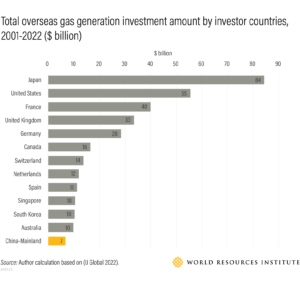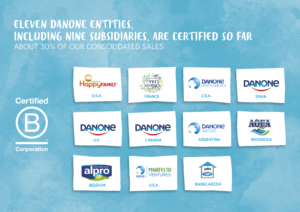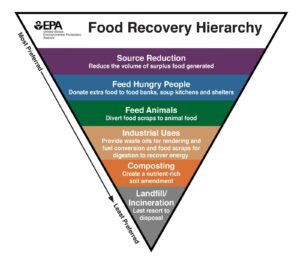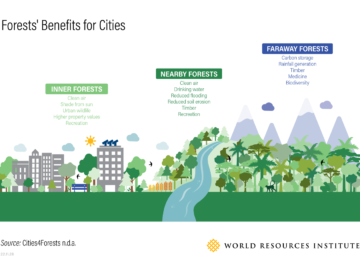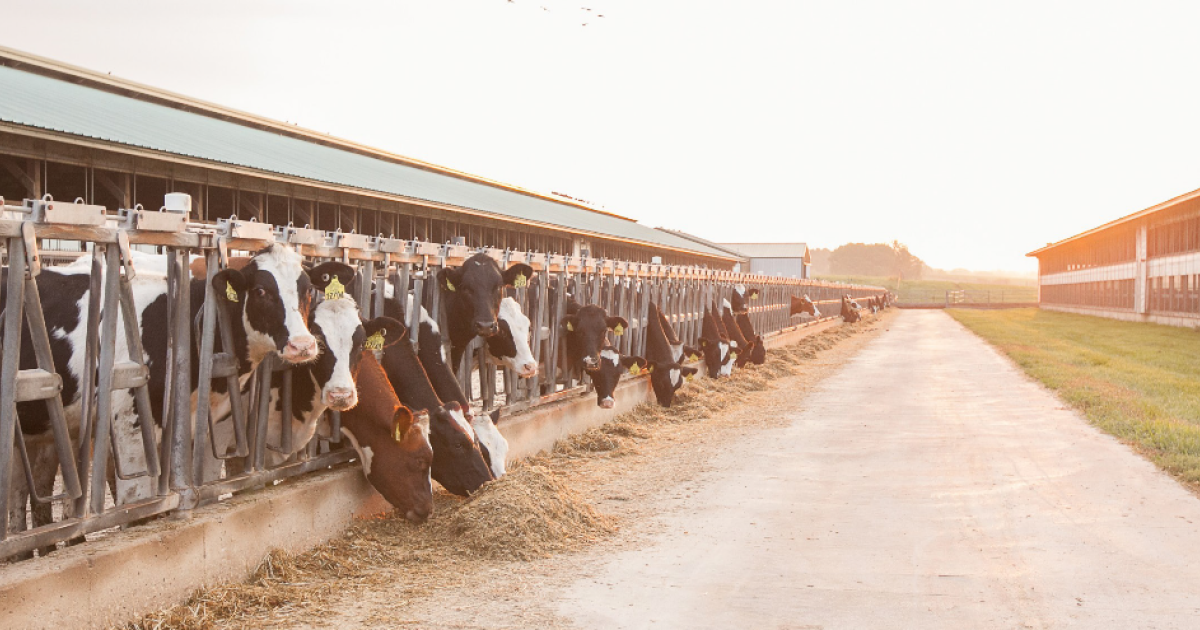
This article is sponsored by Innovation Center for U.S. Dairy.
The U.S. dairy industry first embarked on an ambitious and groundbreaking on-farm effort to support reaching its environmental goals in October 2020 when the world was in its first year of a global pandemic and many countries locked down. While many thought the launch timing was unusual, the industry had the foresight to understand the urgency of this foundational work to unlock dairy’s true potential.
Now, looking back on the last three years, we can see and the progress U.S. dairy has made through the U.S. Dairy Net Zero Initiative (NZI) toward developing the resources and knowledge to support farmers.
Recognizing the integral role it plays in addressing the world’s climate crisis, the U.S. dairy industry established the industry-wide 2050 environmental stewardship goals to achieve greenhouse gas (GHG) neutrality; optimize water use while maximizing recycling; and improve water quality by optimizing the use of manure and nutrients. These goals reflect ambitions across the field, farm and processor levels of the industry and were set by the Innovation Center for U.S. Dairy, a convening organization comprised of representative leadership across the dairy value chain including farmers, cooperatives, processors, retailers and other stakeholders.
To support reaching these goals, the U.S. dairy industry has embarked upon an ambitious and groundbreaking on-farm effort. The U.S. Dairy Net Zero Initiative (NZI) is a learning journey that serves as an essential first phase to produce the foundational research, on-farm pilots and assessments, local and regional networks and economic drivers that are key to unlocking dairy’s true potential to accelerate progress toward GHG emissions reductions, water efficiency and water quality.
NZI by the numbers
NZI was established by six national dairy organizations that represent a large swath of the industry — the Innovation Center for U.S. Dairy, Dairy Management Inc., International Dairy Foods Association, Newtrient, National Milk Producers Federation and U.S. Dairy Export Council — recognizing the need to bring together different areas of the sector, from strategy to policy to practice to support action on the ground.
Since launching in October 2020, NZI has:
- Initiated and supported 26 projects spanning 338 farms across 19 states
- Leveraged more than $40 million in support from partners and grants
- Partnered with more than 66 institutions including corporations, land grant and research institutions, governmental and non-governmental organizations and other dairy community stakeholders
- Led 94 presentations for national and international webinars, panels and forums
- Achieved recognition by national and international organizations, including the Agriculture Innovation Mission for Climate and US Nature 4 Climate
Progress through projects
The U.S. dairy industry is working to close knowledge gaps and advance innovative solutions across dairy production. Through research, analysis and modeling, the industry is identifying the most promising solutions, practices and technologies that will accelerate progress toward its 2050 environmental goals.
Highlights across NZI’s key strategic areas include:
- The Dairy Soil and Water Regeneration project (DSWR) is the largest soil health research project on working dairies in the U.S. Over six years, DSWR research will address data and research gaps around feed production emissions and water quality by measuring how various management practices impact soil health, water quality and GHG emissions under different soil and climate conditions. The Foundation for Food & Agriculture Research (FFAR) awarded a $10 million grant to support the DSWR project, which will be matched by financial and in-kind contributions from the dairy checkoff and from partners including Nestlé, Starbucks and Newtrient for a total value of $21.5 million. The project is led by DMI and the Soil Health Institute (SHI), with research conducted in collaboration with leading academic research institutions including Cornell University, University of California at Davis, Texas A&M AgriLife Research, University of Wisconsin-Madison, University of Wisconsin-Platteville, University of Vermont and USDA Agricultural Research Service (ARS) Northwest Irrigation and Soils Research in Kimberly, Idaho.
- The Greener Cattle Initiative (GCI) is a five-year, public-private collaboration to drive new research from experts around the world and provide effective, scalable and commercially feasible solutions to mitigate enteric methane emissions. This is a unique, global consortium bringing together the Innovation Center for U.S. Dairy, FFAR and industry leaders from beef and dairy. It is currently on track to award more than $5 million in research grants focused on innovation and technology to decrease enteric methane in the dairy and beef industries. GCI awarded its initial grant in the amount of $758,776 to Penn State’s Distinguished Professor of Dairy Nutrition Alexander N. Hristov to develop new enteric methane inhibitors and delivery methods for them.
- On-Farm Assessments — one of the biggest barriers to farmer adoption of on-farm technologies and practices is access to technical resources and expertise to incentivize sustainable projects and investments. Since the fall of 2022, Newtrient has been contracted to conduct more than 70 on-farm assessments including technical assistance and tailored expert recommendations for each farm. Newtrient’s Farm-Specific Assessments provide dairy farmers with a comprehensive GHG baseline assessment of their farm. Newtrient’s cost-effective analysis helps farms of all sizes measure their total GHG footprint — from enteric methane, manure and energy use — to better understand their carbon reduction potential. With this information, dairy farmers can access more markets and leverage their carbon reduction potential to create long-term sustainability.
- The Dairy Scale for Good project (DS4G) seeks to demonstrate how a dairy farm can reach GHG neutrality in an economically viable way, uncovering the extraordinary potential dairy farms hold to provide environmental solutions. The DS4G pilot farms apply the latest research, models and innovations to test and establish best practices and technologies across the farm's environmental footprint. The DS4G project has pilot farms in Florida, California and Washington, each representing a diversity of management styles, geographies and infrastructure, to close the gap between scientific research and on-farm application across the industry. Starbucks and Nestlé are partners of the U.S. Dairy Net Zero Initiative (NZI) and each has invested $10 million over five years to support farmers on their transition to net zero, including on-farm pilot work.
- Dairy Feed in Focus is a shared effort to help incentivize and implement best practices in feed and forage production and feed efficiency. Partners for this project — including Syngenta, The Nature Conservancy, Foremost Farms, Michigan Rotary, Nestlé and the Michigan Milk Producers Association — have helped enroll 32 farmers managing 9,889 acres in Wisconsin and Michigan. The ultimate objective is to develop a replicable program and toolset to facilitate the adoption of best management across dairy farms of all sizes throughout the U.S. To achieve these goals, the program provides funding for equipment, infrastructure, supplies and planning, as well as technical assistance, monitoring, reporting and verification. In addition, the project has streamlined and refined a model for future pilot projects. Partners have also pledged additional investment to enable the Feed in Focus program to expand to other states, helping more farmers adopt soil saving and GHG sequestering practices.
These projects and more have been successful in empowering farms to reduce their environmental impact, and yet progress toward breaking down barriers is only just beginning. As NZI moves forward, diverse partnerships across both public and private sectors will continue to grow, and we look forward to even more collaboration to forge sustainable progress for generations to come.
- SEO Powered Content & PR Distribution. Get Amplified Today.
- PlatoData.Network Vertical Generative Ai. Empower Yourself. Access Here.
- PlatoAiStream. Web3 Intelligence. Knowledge Amplified. Access Here.
- PlatoESG. Carbon, CleanTech, Energy, Environment, Solar, Waste Management. Access Here.
- PlatoHealth. Biotech and Clinical Trials Intelligence. Access Here.
- Source: https://www.greenbiz.com/article/reflecting-3-years-progress-us-dairy-net-zero-initiative
- :has
- :is
- $10 million
- 19
- 2020
- 2022
- 2050
- 26
- 32
- 66
- 70
- 9
- a
- academic
- academic research
- accelerate
- access
- Achieve
- acres
- across
- Action
- addition
- Additional
- address
- addressing
- adopt
- Adoption
- advance
- Agricultural
- agriculture
- Alexander
- All
- also
- ambitions
- ambitious
- amount
- an
- analysis
- and
- and infrastructure
- Application
- Apply
- ARE
- areas
- around
- article
- AS
- assessment
- assessments
- Assistance
- Association
- At
- award
- awarded
- back
- barriers
- Baseline
- BE
- Beef
- been
- Beginning
- BEST
- best practices
- Better
- between
- Biggest
- both
- Breaking
- bring
- Bringing
- by
- california
- CAN
- carbon
- Carbon Reduction
- Center
- chain
- Climate
- climate crisis
- Close
- collaboration
- come
- commercially
- community
- comprehensive
- Comprised
- conditions
- Conduct
- conducted
- consortium
- continue
- contributions
- cornell
- Corporations
- cost-effective
- Council
- countries
- create
- crisis
- Currently
- dairy
- data
- Davis
- decrease
- delivery
- delivery methods
- demonstrate
- develop
- developing
- different
- Distinguished
- diverse
- Diversity
- down
- drive
- drivers
- each
- Economic
- Effective
- efficiency
- effort
- embarked
- Emissions
- empowering
- enable
- energy
- energy use
- environmental
- equipment
- essential
- establish
- established
- Ether (ETH)
- Even
- Expand
- expert
- expertise
- experts
- export
- extraordinary
- facilitate
- Fall
- farm
- farmers
- Farms
- feasible
- Federation
- field
- financial
- First
- five
- florida
- Focus
- focused
- food
- foods
- Footprint
- For
- foremost
- foresight
- forge
- Forward
- Foundation
- from
- funding
- future
- gap
- gaps
- GAS
- generations
- geographies
- GHG
- GHG emissions
- Global
- global pandemic
- Goals
- good
- governmental
- grant
- grants
- greener
- greenhouse gas
- Ground
- groundbreaking
- Grow
- had
- Have
- Health
- help
- helped
- helping
- helps
- hold
- How
- HTTPS
- identifying
- Impact
- implement
- improve
- in
- Inc.
- incentivize
- include
- Including
- industries
- industry
- information
- Infrastructure
- initial
- Initiative
- Innovation
- innovations
- innovative
- Institute
- institutions
- integral
- International
- invested
- investment
- Investments
- IT
- ITS
- journey
- just
- Key
- knowledge
- Land
- large
- largest
- Last
- latest
- launch
- launching
- leaders
- Leadership
- leading
- learning
- Led
- levels
- Leverage
- local
- locked
- long-term
- Look
- looking
- made
- management
- managing
- many
- Markets
- matched
- maximizing
- measure
- measuring
- methane
- methane emissions
- methods
- Michigan
- Milk
- million
- Mission
- Mitigate
- model
- modeling
- models
- monitoring
- more
- most
- moves
- National
- Nature
- Need
- net
- networks
- neutrality
- New
- objective
- october
- of
- on
- only
- Optimize
- optimizing
- organization
- organizations
- Other
- over
- pandemic
- panels
- partners
- partnerships
- Penn
- phase
- pilot
- Pilot projects
- Pilots
- planning
- plato
- Plato Data Intelligence
- PlatoData
- plays
- policy
- potential
- practice
- practices
- Presentations
- private
- Processor
- processors
- produce
- Producers
- Production
- Professor
- Program
- Progress
- project
- projects
- promising
- provide
- provides
- public
- quality
- reach
- reaching
- recognition
- recognizing
- recommendations
- recycling
- reduce
- reduction
- reductions
- refined
- reflect
- reflecting
- regeneration
- regional
- Reporting
- represent
- representative
- representing
- research
- Research Institutions
- Resources
- retailers
- Role
- s
- saving
- scalable
- Scale
- scientific
- Scientific Research
- sector
- Sectors
- see
- Seeks
- serves
- service
- set
- shared
- since
- SIX
- sizes
- soil
- Solutions
- spanning
- Sponsored
- stakeholders
- starbucks
- States
- Stewardship
- Strategic
- Strategy
- streamlined
- styles
- successful
- support
- Supported
- Sustainability
- sustainable
- tailored
- Technical
- Technologies
- Technology
- test
- texas
- than
- that
- The
- the world
- their
- Them
- These
- this
- thought
- three
- Through
- throughout
- timing
- to
- together
- Total
- toward
- track
- transition
- true
- u.s.
- ultimate
- under
- understand
- unique
- university
- University of California
- unlock
- unlocking
- unusual
- upon
- urgency
- us
- usda
- use
- value
- various
- Verification
- viable
- was
- washington
- Water
- Way..
- we
- Webinars
- WELL
- were
- when
- which
- while
- will
- Wisconsin
- with
- Work
- working
- world
- world’s
- year
- years
- yet
- zephyrnet
- zero

